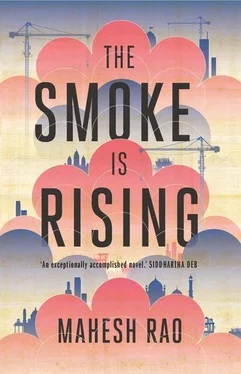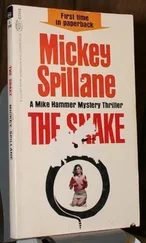The contentious issue was whether the particulars ought to be released into the public domain. It was no secret that there were hostile elements who would seize the opportunity to ensnare the judiciary in frivolous litigation and media-fuelled imbroglios, a situation which would neither assist the upholding of fundamental freedoms nor enhance the efficacy of the courts. The Indian legal system had many unfulfilled requirements but a vaudeville centred on the bank balances of judges was certainly not one of them. Campaigners for transparency gave sermons on accountability, institutional integrity and, above all, public confidence. A certain section of the judiciary, however, wanted to emphasise that it too suffered from a lack of confidence in the intentions of the general public.
One pro-information rights commentator stated that what was at stake was the humanity of the judiciary. The response from the editor of a prominent daily was that judges had shown themselves to be all too human. In support of this contention, a former Supreme Court judge was quoted as estimating that twenty per cent of judges in the country were vulnerable to subornation and unlawful inducements. The venerable gentleman, caught between his duty to the nation and loyalty to his old colleagues, had chosen his words carefully, making judicial corruption sound like a highly communicable influenza rearing up in a delicate constituency. In spite of this incrimination, society at large remained optimistic. After all, the conclusion to be drawn was that an awe-inspiring eighty per cent of the judiciary could still be trusted to maintain the rule of law with a humbling display of integrity. In these times of rampant parliamentary and administrative skulduggery, that figure could only be cherished.

In the half-light of the early morning, the loudspeakers set up on the walls of the city’s Venkateshwara temple let out a ghostly crepitation. The city was beginning to wake: a rickshaw rolled past the main bus stand, a few labourers sipped their coffee seated on the pavement by Sriram Circle and street sweepers crossed the road towards the front of the temple. A trio of buses, sporting garlands of marigold and jasmine, pulled into the bus stand and eased themselves into a row. A man opened the door of the first bus and jumped down from its steps on to the hard earth below. Three other men followed, their descent a little more hesitant and cautious. They all knew that the slowly brightening day held in store a decisive pronouncement. As they stood uneasily in front of the buses, each light smudge in the sky refracted an ambiguous portent.
The loudspeakers sputtered into the dawn a few more times before releasing the low strains of a devotional song. The singer welcomed the morning, praised the light for its benevolence and gave thanks for the end of night. The men looked down at the spidery trails of paan juice on the paved ground, silent and trying not to read any significance into the words of the song. Its sound probably rose up over the temple wall and towards the tops of the coconut trees every morning. There was nothing special about today.
A few minutes later another handful of men arrived at the bus stand, their faces sealed against surprises. They joined the first group, a taut diffidence descending. The men seemed to need a welcoming sign, an indication that they were not simply detritus blown here by an ill wind. One of the men suggested going across the road to the coffee stall and they agreed that it was a good idea. But no one moved.
The driver from one of the buses jumped down and headed towards the back wall of the bus stand compound. The men watched as he stopped by the wall, adjusting his trousers in front of the words ‘The Sword of Truth will Safeguard the Voice of Democracy’ spray-painted in red. He turned back towards the men and they all instantly looked away.
Just as one of the men pulled out his mobile phone to make a call, a van made its way in to the compound. The door slid open and another group joined those already waiting. As their numbers grew, a buoyant spirit descended over the men and the few women who had joined them. There were jokes, a playful headlock and some theatrical tutting. More people arrived. They came on scooters, by cart and crammed into rickshaws. Eight young men pulled up in a gasping Premier Padmini and three others on a bicycle. A couple in their seventies emerged from a tonga , rattled but cheerful. The young man who had first jumped off the bus began a headcount and then abandoned it. He divided the assembly into three sets, one for each bus. It was evident from his manner that from this point no further tomfoolery would be tolerated.
‘Vasu, what time are we leaving?’ a woman asked him.
‘In exactly twenty minutes, whether or not everyone is here,’ he said.
In just over three hours they would reach the outskirts of Bangalore and, depending on the traffic, it would be another half hour or so to the High Court. The judgment in the dispute over the government’s acquisition of land for the HeritageLand complex was due to be handed down before midday. It had taken years to get to this point and all the parties involved wore their bruises heavily.
The last protest by the theme park farmers in the centre of Mysore had led to a lathi charge at KR Circle, futile arrests, avoidable injuries and an abiding sense of failure. A group of community activists led by Vasu had become convinced that focusing on the legal process already underway was the only meaningful option. Rage and venom were easy to reap but the activists firmly held that only a well-placed belief in the legitimacy of their claim could sustain their campaign. It was the type of optimism that could part seas and arrest storms. The alternative was to collapse in the streets around KR Circle as smoke rose into the skies.
A local proverb said that a closed fist could not accommodate righteousness. Vasu said that angry men did not have the cool heads required for effective action. The activists had spent months explaining and reassuring, building up a deep swell that would break on the steps of the High Court, leaving a corpus secure in its ideology and vindicated in its stance.
Vasu’s family had lived on the same plot of land for generations, slowly watching the smoggy extremities of Mysore snake up from the horizon. Dowries, debts and disputes had whittled away at the property and now all that remained was an acre and a half of tenacity. When Vasu’s father first heard of the land acquisition, he had sensed an intrigue. Although illiterate, he was well informed and he knew that even the most nefarious land-grabbing schemes could come cloaked in official sanction, bearing bouquets of worthless enticements and desiccated promises. Vasu was the only member of the family who had passed his PUC and he was immediately put in charge of getting to the bottom of the rumours and speculation.
Over the last few years Vasu had gathered an abundance of information, made contact with NGOs all over the country, learnt from human rights experts, formed links with other farmers’ organisations, consulted environmentalists and visited every village in the affected agricultural belt. It felt like everything he had ever done had been leading up to this day.
Ignoring the acid rawness in his stomach, Vasu began his headcount again.
Behind one of the buses, Ramanna let the beedi drop out of his mouth and ground his heel on it until a small pit had formed in the red earth. He pressed at his knuckles languidly, coaxing out a dull crack from each one. He had not expected so many people to be here; certainly not enough to fill three buses. Facing away from most of the others, as usual, he made no attempt to engage anyone in conversation. He was here only because he knew that he had to safeguard his interests. There was little else now to bind him to these people.
Читать дальше













